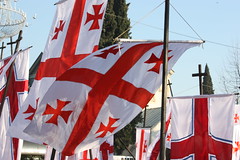Source:
GNP+
The
Ministry of Foreign Affairs of the Netherlands has reserved € 35 million so that gay men, people who use drugs and sex workers in 16 countries can get easier access to information, condoms,
antiretroviral treatment and care.
Never before has a country launched such a large HIV program aimed at these vulnerable groups. It could mean a huge turnaround in reducing the number of HIV infections in the 16 countries.
The program will start in September 2011 and be implemented by seven Netherlands based organizations including GNP+. As well as the grant from the Ministry of Foreign Affairs, the program has been made possible by € 11.7 million from other sources.
The 4.5-year program has been judged the best by the ministry.
Earlier this year there was a call for proposals for development cooperation projects aimed at vulnerable groups. The Dutch government’s decision to reserve funds for this project is highly important. It means a continuation of the ‘Dutch approach’ within international AIDS relief where access to prevention and care in combination with the decriminalization of drug use, homosexuality and sex work is central. This is the only way gay men, people who use drugs and prostitutes can get the care they need.
A good example of this care is the integrated
needle exchange program for injecting drug users. Many HIV infections are prevented as a result. The great success of the Dutch approach is recognized internationally.
Vulnerable groups are 10 to 20 times more likely to become infected with HIV than the general population. Only 8% has access to prevention, care, HIV treatment and support.
Many countries have legislation that makes access to care difficult or impossible. Examples include laws that make homosexuality a criminal offence or ones that are used to prosecute sex workers.
Offering HIV/AIDS care developed for and by these vulnerable groups must therefore go hand in hand with political pressure to change such legislation. This is precisely the aim of this program. It is also aimed at partners of gay men, drug users and sex workers. Because of the taboo related to homosexuality, in many countries men also have a relationship with a woman or are married.
The program will be run in 16 countries: Georgia, Kirghizstan, Tadzhikistan, Ukraine, Botswana, Uganda, Kenya, Zimbabwe, South Africa, Nepal, Pakistan, Vietnam, Indonesia, Brazil, Costa Rica and Ecuador.
The program builds on work carried out in recent years. This work can now be continued and expanded. This new program will involve a lot more collaboration in order to be as effective and efficient as possible.
Gaps in existing projects will also be tackled. For example, most prevention programs along ‘truck routes’ in Africa are aimed at drivers. Until now, they have not benefited sex workers. This has meant that a great many infections still take place along these routes.
The Dutch program will be carried out by seven organizations: Aids Fonds/STI AIDS Netherlands, Aids Foundation East-West, COC, Global Network of People living with HIV, Health Connections International, Mainline and Schorer.
Together with 102 partner organizations in the 16 countries listed, they will ensure that in the coming years 400,000 gay and bisexual men, transsexuals, people who use drugs and sex workers get access to HIV prevention, treatment, care and other support.
New Report Shows Major AIDS Funders Fail to Track Investments for Gay Men and Transgender People
Source:
MSMGF
 Omalo image via Wikipedia
Omalo image via Wikipedia














 Join our page
Join our page

